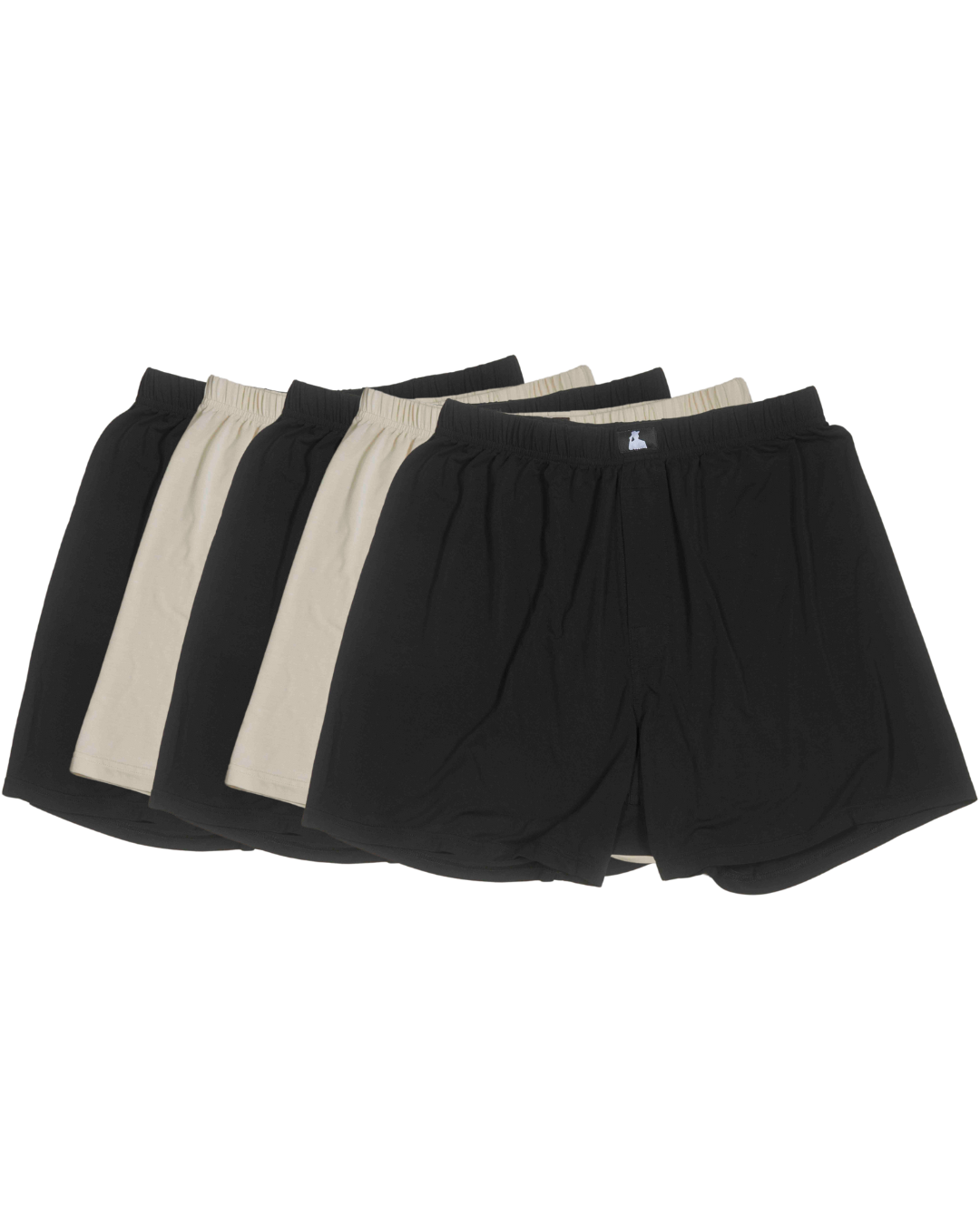How to Cum More (and Healthier): Boost Fertility Naturally
Written By The Mr. Fertyl Research & Education Team
Talking about how to “cum more” might feel awkward, but it really comes down to improving fertility and semen quality in a natural, healthy way. Ejaculate volume and sperm health aren’t just about macho myths or miracle supplements – they’re influenced by everyday factors like your environment, clothing, and lifestyle. By understanding how things like temperature, toxins, and blood flow affect sperm production, you can make simple changes to support your body’s natural fertility. The best part? These changes not only can help you cum more (in terms of volume) but also promote healthier, more fertile semen – a win for your reproductive health and confidence.
The Science of Semen Volume and Fertility
Semen volume and sperm quality are key markers of male fertility. When someone asks how to “cum more,” it’s essentially about increasing the amount of semen and the number of healthy sperm in each ejaculation. Medical experts note that modern men’s fertility has been under pressure from various environmental and lifestyle factors [1]. Exposure to hormone-disrupting chemicals in everyday products, chronic stress, poor diet, and even how we sit or exercise can all influence sperm count and quality [1]. The good news is that many of these factors are changeable. By focusing on your overall health and environment, you can naturally boost your ejaculatory volume and sperm health over time – usually within about three months, which is the lifecycle of sperm production [1].

Cooler, Cleaner, Fertyl-Friendly
Shop Non-Toxic NowKeep It Cool: Temperature’s Impact on Sperm
One of the biggest factors in sperm production is temperature. Your testicles hang outside the body for a reason – they need to stay a few degrees cooler than your core body temperature for optimal sperm creation [2]. When the testes get too warm, sperm count and motility drop. Frequent exposure to high heat (like hot tubs, saunas, or even placing a laptop on your lap often) can significantly impair sperm output [1]. In fact, research shows that men who stopped using hot tubs and similar “wet heat” sources saw dramatic rebounds in their sperm counts – in one study nearly half of men showed a 491% increase in total motile sperm after a few months of staying out of hot water [8]. Heat stress is no friend to fertility.
Everyday clothing choices can also affect temperature down there. Tight, heat-trapping underwear can raise scrotal temperature and potentially hamper sperm production [2]. There’s long been a debate about boxers vs. briefs, but science offers some clear insight. A large Harvard study found that men who usually wore loose-fitting boxers had significantly higher sperm counts than men who wore tight briefs [6]. The boxers-wearing men in the study had 25% more sperm per milliliter of semen and 17% more total sperm per ejaculation than the men wearing snug underwear [6]. Looser underpants keep the testes cooler, which likely explains this boost [6][9]. (It’s worth noting that some clinicians say the underwear choice alone might not make or break fertility [1], but keeping your groin cool definitely helps overall.) The takeaway: to cum more (and healthier), avoid excessive heat. Opt for breathable underwear, skip the nightly hot tub habit, and be mindful of anything that warms your scrotum for long periods.
Hidden Chemicals in Clothes and the Environment
Beyond heat, another sneaky fertility saboteur is toxic chemicals in our environment – including those hidden in some fabrics and clothing. Many everyday chemicals can act as endocrine disruptors, meaning they interfere with your hormones and reproductive system [3]. These endocrine-disrupting chemicals (EDCs) are found in everything from plastics and pesticides to personal care products – and yes, even in certain clothing materials [3]. For example, synthetic fabrics are often treated with industrial chemicals: flame retardants, stain repellents, and waterproofing agents (like perfluorochemicals) can all leach into our bodies [3]. Some of these compounds – notably the PFAS chemicals used to make clothes water-resistant – have been linked to hormone disruption and reduced fertility [5]. Over time, constant low-level exposure to such toxins might diminish sperm quality or hormonal balance without you even realizing it [4]. In fact, a 2025 scientific review found consistent associations between exposure to common EDCs (like BPA, phthalates, and PFAS) and poorer reproductive outcomes in men, including impaired semen quality and altered hormone levels [4]. In plain terms, chemical exposures can shrink your sperm count and make it harder to conceive [4].
What can you do about this? Start by becoming aware of what’s in contact with your body. Choose natural, toxin-free materials whenever possible. Regulatory bodies and health experts suggest wearing natural fabrics (like bamboo, cotton, or wool) that haven’t been doused in harsh chemicals, rather than synthetic fabrics that may off-gas or shed EDC particles [5]. Even the Endocrine Society cautions that consumer products such as “fabrics treated with flame retardants” can be a source of hormone-disrupting chemicals in your home [3]. By switching to clothing made from organic or eco-friendly materials, you reduce one more hidden risk factor to your fertility. It’s a simple swap that can help keep unwelcome chemicals away from your privates, letting your hormonal system operate more normally.
Boosting Circulation and Healthy Habits
Finally, consider your overall lifestyle – it plays a huge role in how much you cum and how healthy your sperm are. Good circulation and hormonal balance go hand in hand with semen volume. If you sit all day or lead a very sedentary life, blood flow to the groin can stagnate and the area can overheat, which isn’t ideal for sperm production. On the other hand, regular exercise and maintaining a healthy weight can improve your testosterone levels, blood circulation, and sperm parameters [1]. Research indicates that for every 20 pounds of excess weight, a man’s infertility risk may rise by about 10% – likely due to hormonal imbalances and increased heat around the testicles in overweight individuals [1]. The encouraging part is that by adopting healthier habits (balanced diet, moderate exercise, weight management), men often see improvements in sperm count and motility within a few months [1]. Think of it as tuning up the whole reproductive system: better cardiovascular health and metabolism means better nutrient delivery to the testes and a better hormonal environment for sperm to develop.
Other healthful habits will also maximize your semen output. Staying well-hydrated and getting enough sleep can subtly increase fluid volume in your ejaculate (since semen is largely a fluid that glands produce). Managing stress is crucial too – chronic stress elevates cortisol, which can suppress sex hormones and lower sperm counts [1]. And of course, avoid the classic sperm enemies: smoking (tobacco introduces DNA-damaging chemicals to sperm) and heavy alcohol use (which can lower testosterone and semen production) [1]. In short, the more you treat your whole body like it’s “on a mission” to make a baby – with good nutrition, exercise, and avoiding toxins – the more likely you are to see an increase in ejaculation volume and sperm quality.

Protect Your Swimmers, Naturally
Shop Safe UnderwearThe Bottom Line: Healthy Changes for More (and Better) Cum
“How to cum more” isn’t about a weird trick or magic pill – it’s about creating the best conditions for your body to produce semen abundantly and healthily. By keeping your testicles cool (wearing breathable, loose underwear and avoiding excessive heat), you give your sperm the temperature they need to thrive. By steering clear of hormone-hijacking chemicals in your clothes and environment, you protect your fertility at the hormonal level, letting nature do its job. And by staying active, maintaining a healthy weight, and living clean, you ensure strong blood flow and hormonal support to the reproductive organs. All of these steps together can lead to noticeable improvements: many men report increased ejaculate volume, better sperm counts, and even improved libido when they make these lifestyle adjustments.
One practical tip is to invest in fertility-friendly clothing, especially underwear. Consider options made from breathable, toxin-free fabrics like Bamboo Lyocell, which allow for airflow and don’t contain the endocrine disruptors found in some synthetic materials. This kind of underwear helps keep things cool and chemical-free around your most sensitive parts, naturally supporting sperm production (and as a bonus, they’re often more comfortable and eco-friendly too). Small changes, like swapping your tight polyester briefs for relaxed-fit bamboo underwear, can have an outsized impact on your reproductive health over time.
In conclusion, normalizing the conversation around semen volume and fertility is important. There’s nothing strange about wanting to improve your virility – it’s part of overall health. By focusing on core wellness factors and smarter daily choices, you can boost your semen volume naturally and know you’re doing something positive for your fertility. Not only will you potentially cum more, but you’ll be cuming healthier, with sperm that are more likely to do their job when it counts. That’s a benefit you (and your future family) can feel good about.
- Cleveland Clinic. (2025, September 17). How To Increase Sperm Count and Improve Male Fertility. Source.
- Mayo Clinic Health System. (2019, March 1). Boxers or briefs? 4 common fertility myths debunked. Source.
- Endocrine Society. (2022, January 24). Endocrine-Disrupting Chemicals (EDCs). Source.
- Sarantaki, A., et al. (2025). Associations Between Endocrine-Disrupting Chemical Exposure and Fertility Outcomes: A Decade of Human Epidemiological Evidence. Life, 15(7), 993. Source.
- ChemTrust. (n.d.). Avoiding endocrine disruptors in furniture, carpets, clothes and other fabrics. Source.
- Sample, I. (2018, August 8). Wearing boxer shorts boosts sperm count, scientists say. Source.
- Chisholm, P. (2018, August 8). Boxers or Briefs? Experts Disagree Over Tight Underwear’s Effect on Male Fertility. NPR (via NLM). Source.
- UCSF Health. (2007, March 2). Hot tubs hurt fertility, UCSF study shows. [Press release] UCSF News Center. Source.
- Mínguez-Alarcón, L. (2018, August 8). Wearing boxer shorts boosts sperm count, scientists say. Source.

